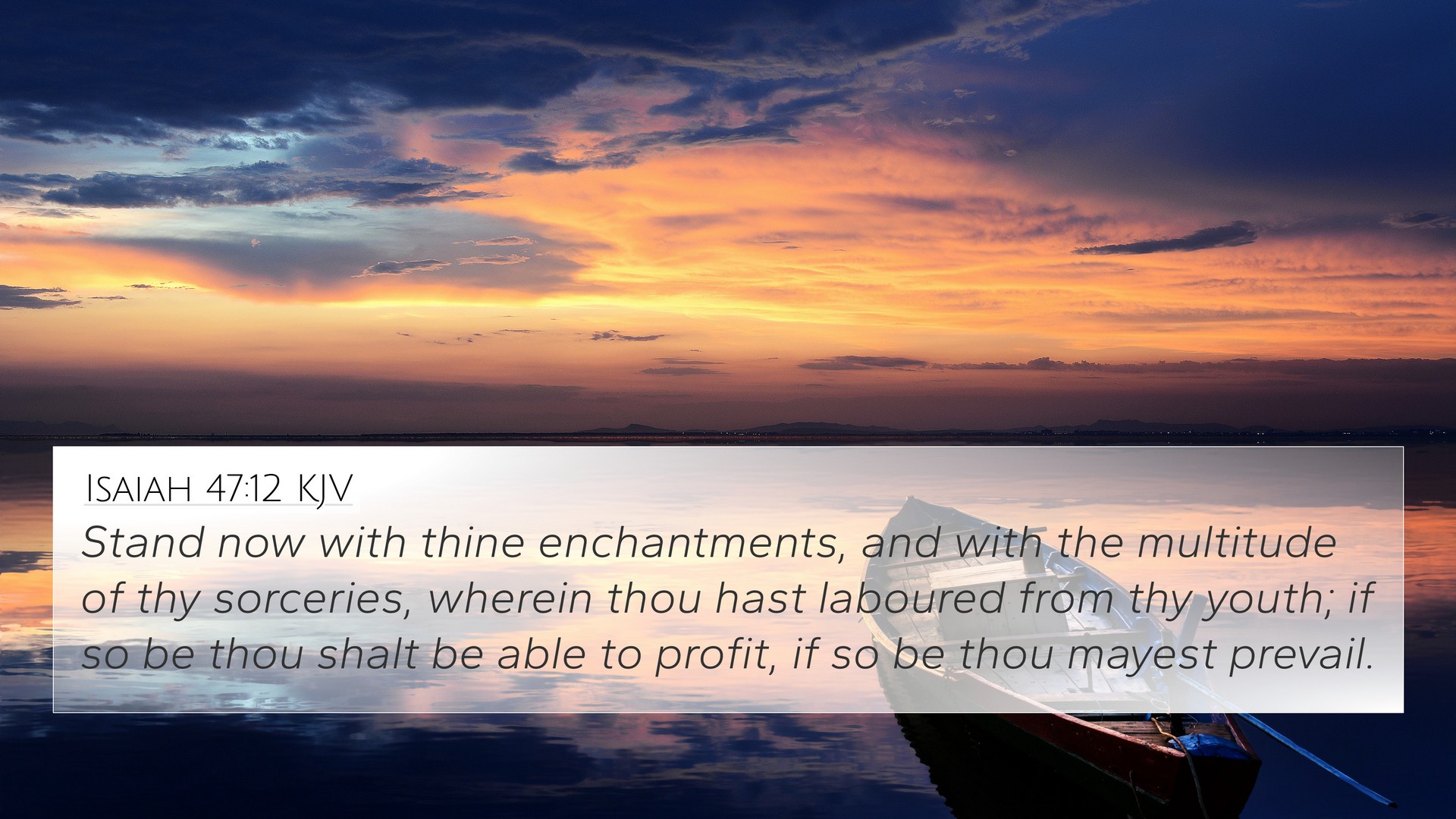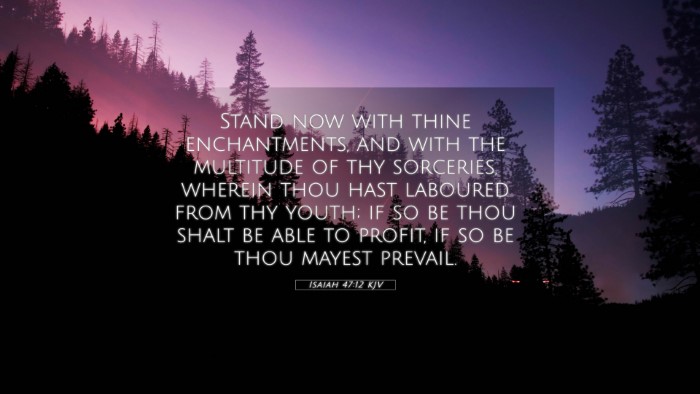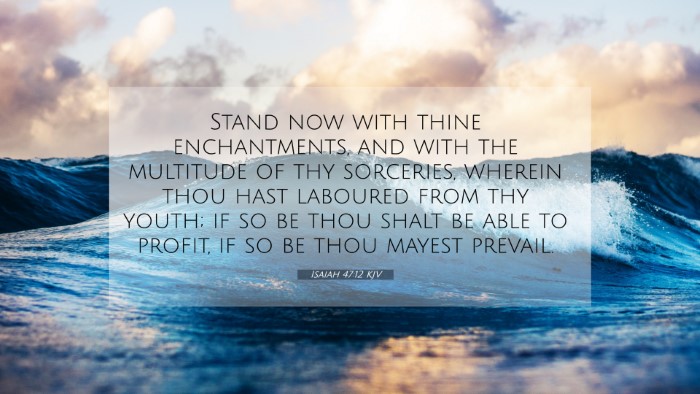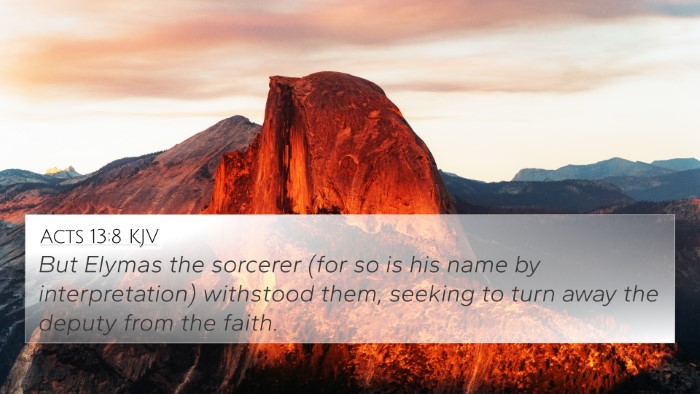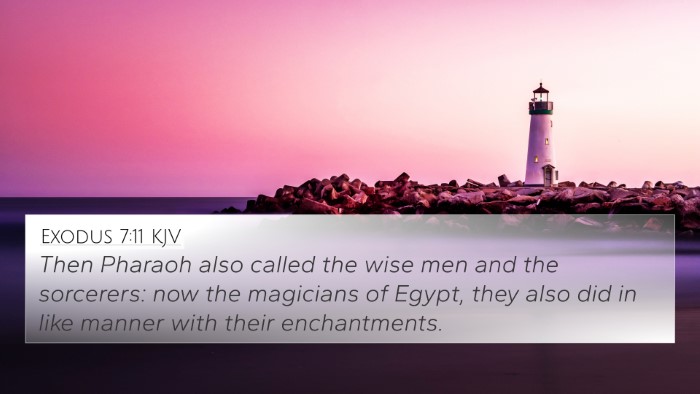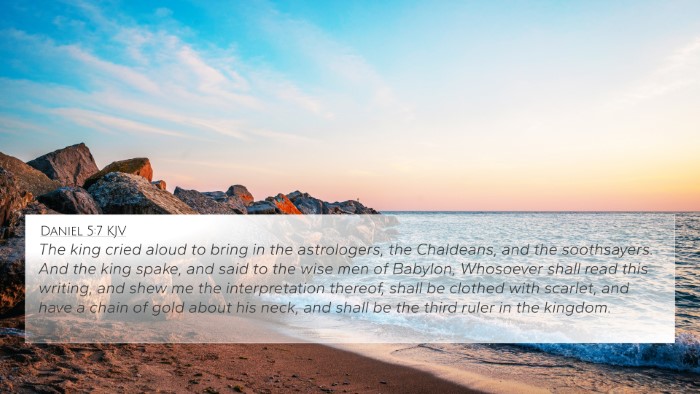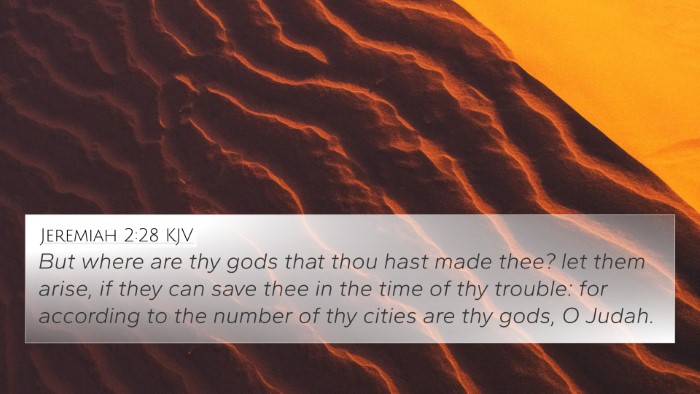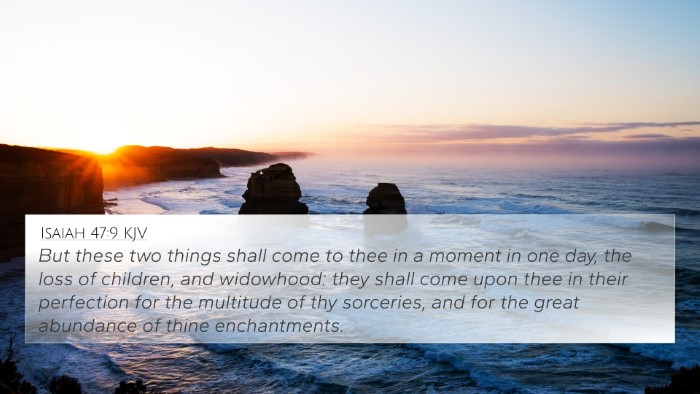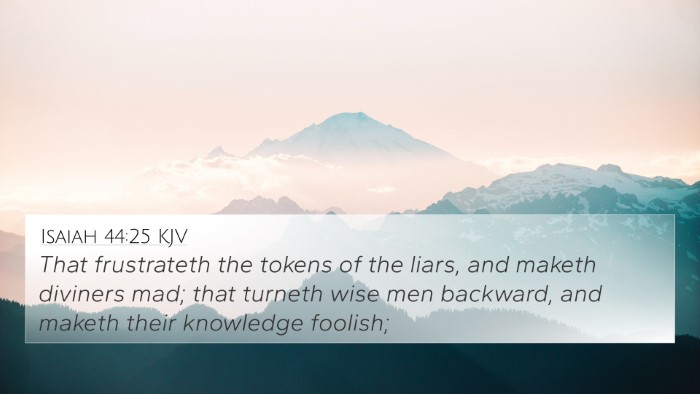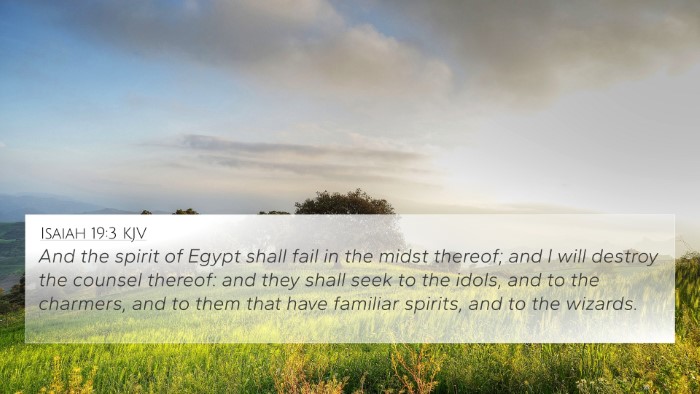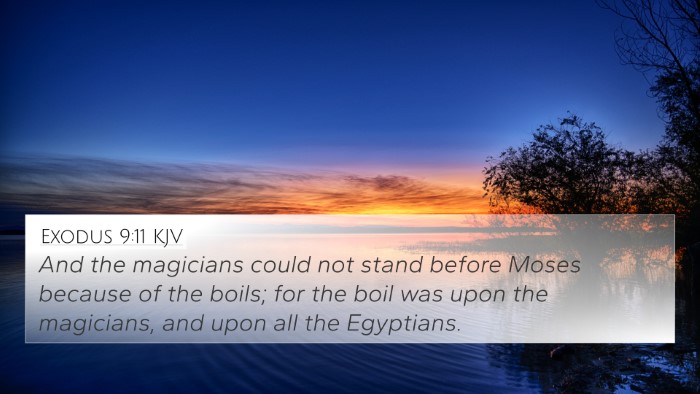Bible Verse Analysis: Isaiah 47:12
Verse Reference: Isaiah 47:12 - "Stand now with thine enchantments, and with the multitude of thy sorceries, wherein thou hast labored from thy youth; if so be thou shalt be able to profit, if so be thou mayest prevail."
Meaning and Interpretation
This verse from the book of Isaiah speaks to the futility of relying on sorcery and enchantments for security and success. Several public domain commentaries provide insights that deepen understanding of this passage:
-
Matthew Henry's Commentary:
Matthew Henry remarks that God, through Isaiah, challenges Babylon to rely on their magical arts as a last resort. The mocking tone indicates the futility of these practices, exposing the delusion of trusting in sorcery instead of in God's power and sovereignty. Henry emphasizes that such reliance is both vain and fruitless.
-
Albert Barnes' Commentary:
Barnes explains that the verse is a taunt aimed at Babylon, encouraging those who practiced sorcery to demonstrate their power as a means to prove their competency. The call to "stand now" suggests a challenge to act based on their supposed abilities, highlighting the theme of divine judgment against false idols and practices.
-
Adam Clarke's Commentary:
Clarke provides further analysis on the historical context of Babylon's reliance on sorcery, referring to the practices rampant in ancient Mesopotamia. He warns of the disastrous outcomes of engaging in the occult, arguing that genuine strength comes from God's truth, not man-made rituals or supernatural claims.
Thematic Connections and Cross-References
Isaiah 47:12 serves as a focal point for understanding the perils of idolatry and the emptiness of pagan practices. Here are 10 biblical cross-references that resonate with its message:
- Deuteronomy 18:10-12 - A warning against divination and sorcery.
- Isaiah 46:5-7 - God's challenge to the idols and their inability to save.
- 2 Corinthians 6:14-16 - The call for believers to separate from false worship.
- Galatians 5:19-21 - Listing the works of the flesh, including sorcery.
- Exodus 7:10-12 - The impotence of Egyptian magicians before God's power.
- Micah 5:12 - God's promise to cut off sorceries and those who use divination.
- Matthew 7:22-23 - A warning against false reliance on spiritual practices without true faith.
- Revelation 21:8 - An explicit declaration that sorcerers will have their place in the second death.
- Acts 19:19 - The early Church’s renunciation of magical practices after conversion.
- Isaiah 47:13-15 - Continues with the idea of the failure of the wise men of Babylon.
Understanding Inter-Biblical Dialogue
The connections between Isaiah 47:12 and other scripture reveal a consistent biblical theme: the inadequacy of reliance upon human wisdom and idolatrous practices compared to the sufficiency of God. This creates an opportunity for comparative Bible verse analysis to appreciate the thematic integrity found throughout Scripture.
Tools and Methods for Cross-Referencing
To further explore the connections between Bible verses, consider utilizing:
- Bible Concordance: A tool that lists words and phrases in the Bible for easy reference.
- Bible Cross-Reference Guide: A systematic approach to find related Scriptures.
- Cross-Reference Bible Study: Methods to connect verses in a study context.
- Bible Chain References: A linking of verses in a sequence that reveals deeper understanding.
Conclusion
The verse from Isaiah serves as both a warning and a reminder that true power and help come from God alone, contrasting the vain efforts of human sorcery. Using cross-referencing tools, one can uncover the richness of Scripture, identifying connections between Old and New Testament teachings and how they inform one another through thematic Bible verse connections.
By studying passages like Isaiah 47:12 and their cross-references, we can deepen our understanding of the Bible's cohesive message regarding faith, worship, and divine authority.
